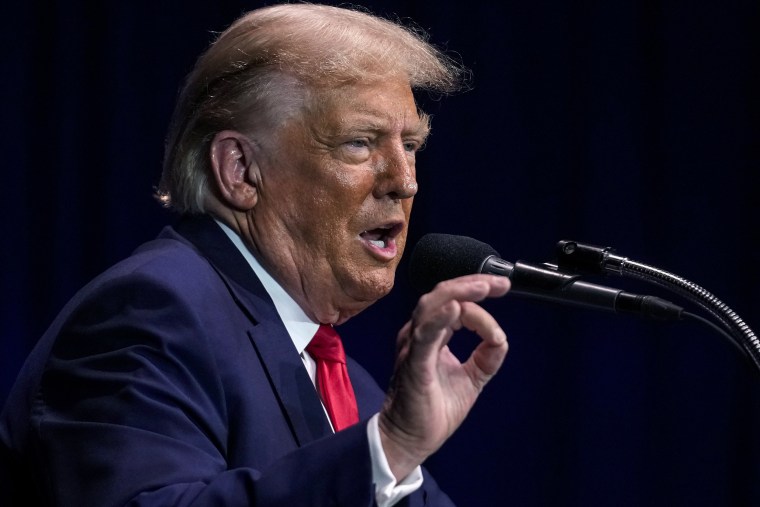WASHINGTON — Former President Donald Trump wants to subpoena the successor to the House Jan. 6 committee and several other entities in connection with the federal election interference criminal case, contending that there are "certain missing records" that could be relevant to his defense.
In a court filing in one of the two cases brought by special counsel Jack Smith, Trump's lawyers said they would like to subpoena the U.S. archivist, the clerk of the House of Representatives, the Committee on House Administration (which took over material from the defunct Jan. 6 committee), the special counsel to the president, the Department of Homeland Security's general counsel, Rep. Barry Loudermilk of Georgia and Rep. Bennie Thompson, D-Miss., who chaired the Jan. 6 committee.
Loudermilk, a Republican on the House Administration Committee, wrote in an earlier letter that only written transcripts were transferred after the Jan. 6 committee dissolved and that "video recordings of transcribed interviews and depositions, which featured prominently during the Select Committee’s hearings, were not archived or transferred."
Trump's team said that material is important to his defense.
"Needless to say, there is significant overlap between the Select Committee’s investigation and this case, and there is a strong likelihood that individuals discussed in the Missing Records could be called as trial witnesses," Trump's lawyers wrote.
Trump's trial on four counts related to his efforts to stop the peaceful transfer of power and stay in the White House is set to begin in March. The Trump filing came the day after Smith's team revealed that at least 25 people cited attorney-client privilege when they declined to provide information for the investigation.

